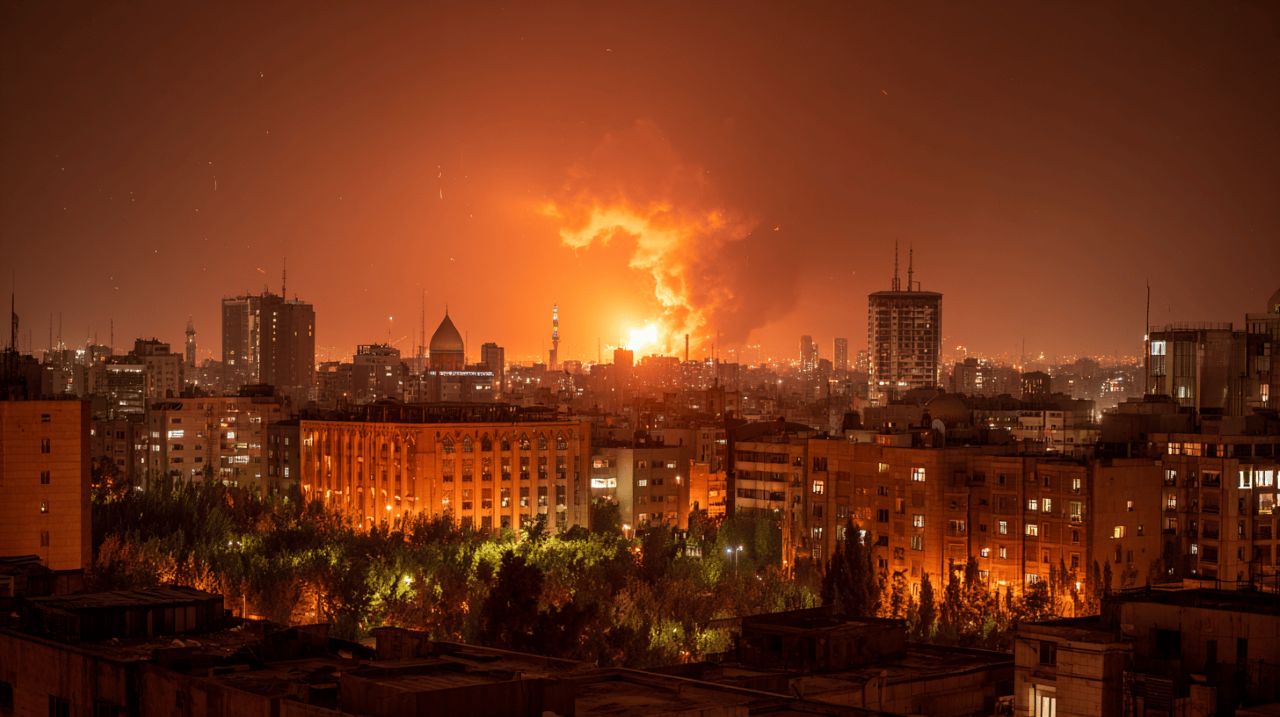
Just after midnight in Tehran, explosions shattered the uneasy quiet and Residents in the northern districts, long accustomed to the city’s unpredictable rhythms all watched as the sky flickered with the unmistakable orange of distant fires.
Israel struck deep inside the Iranian capital, targeting government sites and, in a move that sent shockwaves through diplomatic circles, the notorious Evin Prison. The Israeli Defense Ministry confirmed the attacks and described them as the largest so far in the ongoing shadow war with Iran.
This was not the usual tit-for-tat. The strikes followed a U.S. air campaign that had, just hours earlier, pummeled three of Iran’s most sensitive nuclear sites, including the underground Fordow facility. President Trump, never one to shy from spectacle, declared on social media that the sites had been “totally obliterated,” though U.S. officials were still scrambling to assess the true extent of the damage. The world, meanwhile, braced for Tehran’s response. For the first time in years, the specter of all-out war in the Middle East felt less like a distant possibility and more like a gathering storm.
Regime Change: From Whisper to Megaphone
What truly set this episode apart was not just the scale of the violence, but the rhetoric that followed. President Trump, in a series of posts and off-the-cuff remarks, openly mused about the possibility of regime change in Iran. This was not the usual Washington dance of plausible deniability. Trump’s words were blunt, even for him: “Maybe it’s time for a new government in Tehran.”
For years, American officials have tiptoed around the idea, careful not to give Iran’s hardliners ammunition for their narrative of foreign meddling. Now, with Israeli jets over Tehran and American bunker-busters collapsing tunnels at Fordow, the old red lines seemed to have faded. European allies recoiled. France’s foreign minister called the idea “illusory and dangerous,” warning that bombs rarely bring democracy. Britain’s top diplomat insisted the U.S. was not targeting Iran’s civilian leadership, but the message from Washington was muddled at best.
Tehran’s Calculus: Retaliation and Restraint
Inside Iran, the mood was a volatile mix of fury and defiance. The government vowed “proportionate” retaliation, and within hours, missiles and drones were launched at Israeli cities, including Haifa and Tel Aviv. Sirens wailed across central Israel, and for a tense half-hour, the region teetered on the edge. Iranian officials warned that American bases across the Middle East were now “legitimate targets,” and the U.S. Embassy in Qatar urged Americans to shelter in place.
Yet, for all the bluster, there was a sense of calculation in Tehran’s response. The regime, battered but not broken, seemed to be weighing its options. Russia’s President Putin condemned the strikes as “unprovoked aggression” but stopped short of offering concrete support. North Korea, in a rare moment of relevance, denounced the U.S. and Israel, while oil prices spiked and global markets shuddered.
The Human Cost and the Unanswered Questions
Lost in the geopolitical chess match were the ordinary Iranians caught in the crossfire. Human rights groups reported nearly a thousand dead and thousands more wounded in the Israeli strikes. Evin Prison, infamous for its political prisoners, was damaged, though Iranian authorities insisted the situation was “under control.” For families with loved ones inside, the uncertainty was agonizing.
Meanwhile, the international community scrambled to assess the fallout. The head of the U.N.’s nuclear watchdog warned of “very significant damage” at Fordow, raising new questions about the future of Iran’s nuclear program and the risk of radioactive contamination. European diplomats, sidelined by the speed and scale of events, called for a return to negotiations, but few seemed to believe that the old playbook would work.
A New Era, or Just a New Crisis?
What is clear is that the Middle East has crossed into uncharted territory. The old rules—do not strike the capital, do not talk openly about regime change, keep the nuclear issue in the realm of diplomacy—have been tossed aside. Whether this marks the beginning of a new era or just another chapter in the region’s endless cycle of crisis remains to be seen.
For now, the world watches and waits, hoping that the next red line is not drawn in blood.
